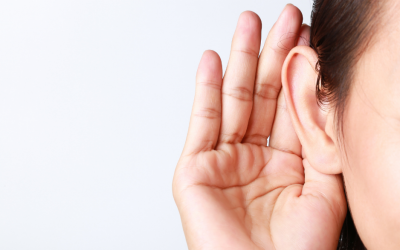Science tells us that an “attitude of gratitude” has positive effects on our health and wellness. Being grateful is consistently associated with feeling happier, more optimistic and appreciative. We can feel gratitude towards a person, a circumstance or even a vital material possession (i.e.: a place to live). No matter what we have (or don’t have), gratitude allows us to feel abundance, meaning that we feel we are enough, have enough and don’t desire more (at least not at this moment). Unfortunately, many of us aren’t satisfied with what we have now or who we are today.
Gratitude Beats Materialism
In today’s world, gratitude seems to be centered on possessions, convenience and luxury. We minimize what we have while trying to keep up with other people. Many people feel entitled, believing that they should have more than what they can afford. Unrealistic expectations seem to be the norm. We are always waiting for the next big thing, the never-ending must-have upgrades. However, it’s nearly impossible to be over-materialistic and acknowledge what we are grateful for on a daily basis.
Gratitude is a State of Being
As a society, we mistakenly measure success and self-worth by what we have instead of who we are. This only continues the cycle of ingratitude when gratitude should be who we are, how we live, and in essence, a state of being. We can choose to cultivate a feeling or mindset of gratitude into a way of life. Sincere gratefulness can solve a lot of society’s problems. Moving from situational gratefulness to being grateful, our lives change and the universe delivers more to appreciate.
Point of View
When we look at life from a gratitude standpoint, we can be intentional about how we frame everything in our lives. Instead of looking at a rainy day as a ruined day, we can choose to see it as an opportunity to catch up on a favorite indoor activity. It takes just as much work to be ungrateful or bitter as it does to be grateful and happy.
Benefits of Having an Attitude of Gratitude
Most of us don’t start thinking about what we are grateful for unless something traumatic occurs or Thanksgiving is approaching. Suddenly, we are making lists of what we are thankful for; we’re posting quotes about gratitude on our social media and reminding others to ‘be grateful for what you have.’ However, daily living and breathing a gratitude mindset, good things continue happening to us, our lives, our emotions and even our relationships.
There are many benefits of gratitude, but this list covers quite a few of them:
- We feel happier
- Gives our self-esteem a boost
- Increases our positivity & optimism
- Improves our psychological well-being
- Improves our relationships (romantic and platonic)
- Strengthens family bonds
- We are more giving to ourselves & others
- Helps increase spiritualism
- Reduces our materialism
- Improves our patience
- Makes us effective leaders
- Minimizes symptoms of depression
- May significantly lower blood pressure
- Increases sleep quality
- Enjoy better physical & mental health
- Helps substance abuse recovery
- Enhances recovery from significant health issues
Whoever coined the phrase “count your blessings” was certainly going through life with “an attitude of gratitude.” While these sayings may sound cliche, they correlate with intentionally living a grateful life, not just being grateful when the moment calls for it.
Train Your Brain for Gratitude & Positivity
Living in a state of being grateful is mainly a matter of changing our daily habits and how we look at the world. Start by being grateful intentionally. We can start gradually with just one or all of the following ideas:
- Establish a daily practice of writing in a gratitude journal
- Remember the hard times & acknowledge where you are now
- Say prayers or mantras of gratitude & appreciation
- Use visual reminders to trigger positive thoughts
- Think of at least three things you are grateful for each day
- Notice the good things in life, the small details we tend to overlook
- Express appreciation & gratitude to others
- Smile often & say ‘thank you’ – especially to those who service positions
- Use breathwork to ground yourself in the present moment
- Meditate on your relationships & life (think: Have I caused anyone grief? Have I given anyone anything? What have I received from others?)
- Use social media to spread happiness, positivity and, of course, gratitude
- Appreciate different cultures.
How gratitude is practiced and expressed isn’t confined to just these ideas. And the wonderful thing about living a life of gratitude is that it costs nothing and requires no special tools, meaning we can start right now!. So, what are you grateful for?



0 Comments